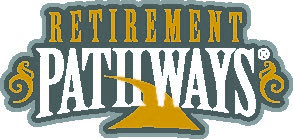SUBSCRIBE
Enter your Name and Email address to get
the newsletter delivered to your inbox.
Please include name of person that directed you to my online newsletter so I can thank them personally.


Dianne Williams Wildt, MBA
Certified Retirement Counselor®
Since 1983 in the financial services and investment industry
Retirement Pathways, Inc.
4500 Bowling Blvd., Suite 100
Louisville, KY 40207
Phone: 502-797-1258
Email: dianne@retirementpathways.com
Website: www.retirementpathways.com

High net worth families often face the dual challenges of giving to charity while also ensuring that loved ones – especially a surviving spouse and children – remain financially secure. A charitable lead trust can help meet these dual challenges.
A charitable remainder trust, which we will detail in the next issue of Let’s Talk Money, does the opposite. A person named in the trust, typically a family member, receives income from the trust for either their lifetime or another predetermined amount of time. At the end of the term established in the trust, all remaining assets go to charities named in the trust.
Both types of trusts are typically irrevocable, making their terms extremely difficult to change. Before creating either of these, enlist the help of the appropriate legal, tax and financial professionals.
For example, a grantor trust creates an income tax deduction for the donor up front, but taxes are then paid by the donor upon receiving any income from the trust. A non-grantor trust establishes a separate trust to pay taxes, so the individual donor doesn’t get an income tax deduction.
Choosing the right trust for your situation can be complicated, so it is advisable to consult an estate planning attorney and other trusted advisors before establishing this or any irrevocable trust.
This content does not constitute financial, insurance, investment, legal, tax, or general lending advice. Consult your financial, legal and tax professionals regarding your personal needs, goals and circumstances.
Enter your Name and Email address to get
the newsletter delivered to your inbox.
Please include name of person that directed you to my online newsletter so I can thank them personally.
Enter your Name, Email Address and a short message. We'll respond to you as soon as possible.
Investment advisory services offered through American Capital Management, Inc., a State Registered Investment Advisor. Retirement Pathways, Inc. is independent of American Capital Management, Inc.
Retirement Pathways, Inc. and LTM Marketing Specialists LLC are unrelated companies. This publication was prepared for the publication’s provider by LTM Client Marketing, an unrelated third party. Articles are not written or produced by the named representative.
The information and opinions contained in this web site are obtained from sources believed to be reliable, but their accuracy cannot be guaranteed. The publishers assume no responsibility for errors and omissions or for any damages resulting from the use of the published information. This web site is published with the understanding that it does not render legal, accounting, financial, or other professional advice. Whole or partial reproduction of this web site is forbidden without the written permission of the publisher.